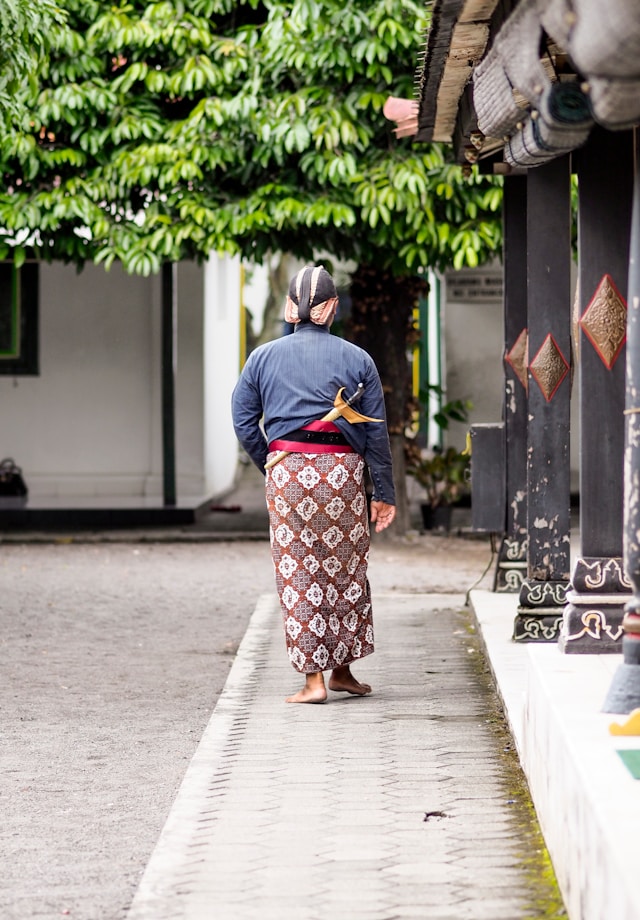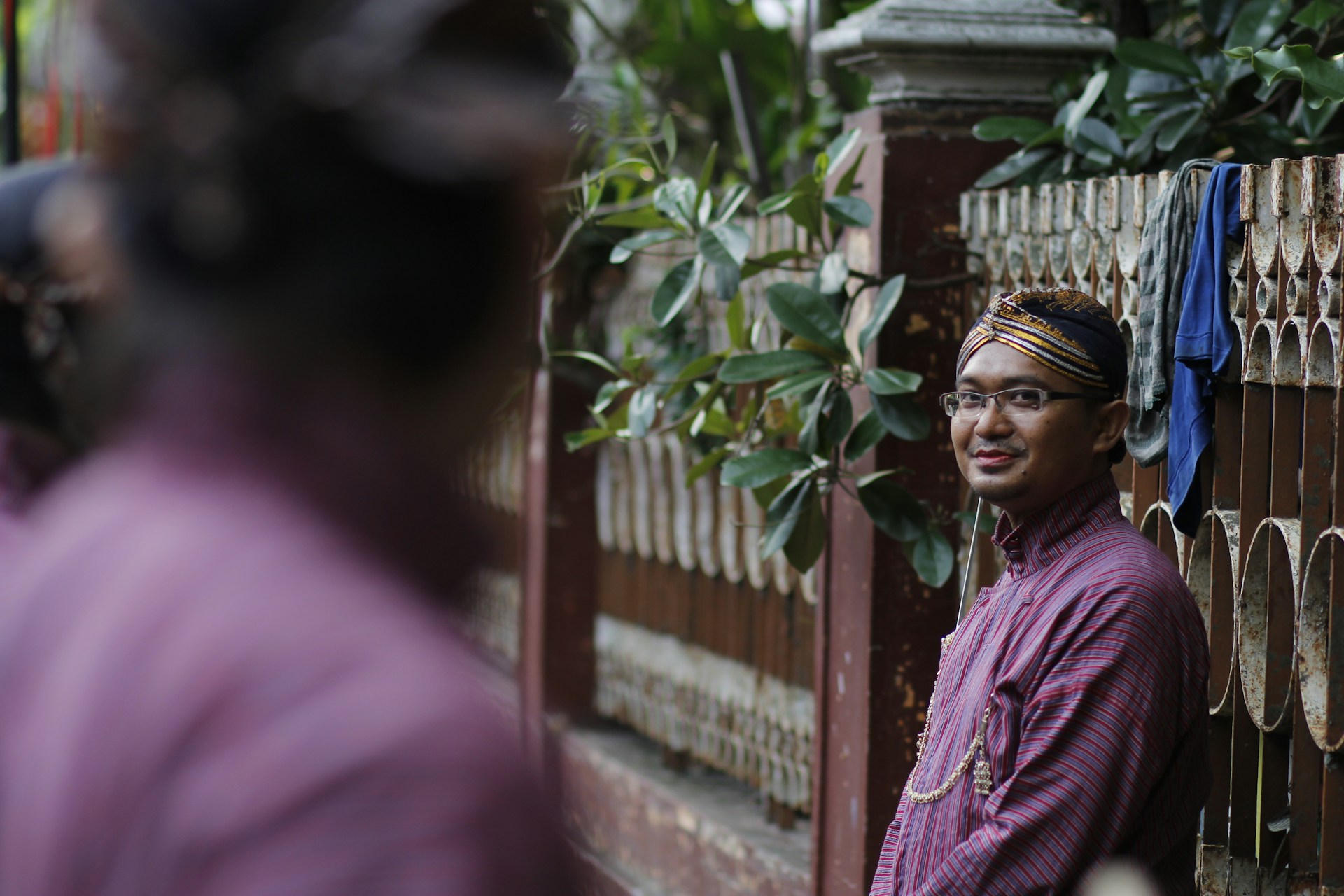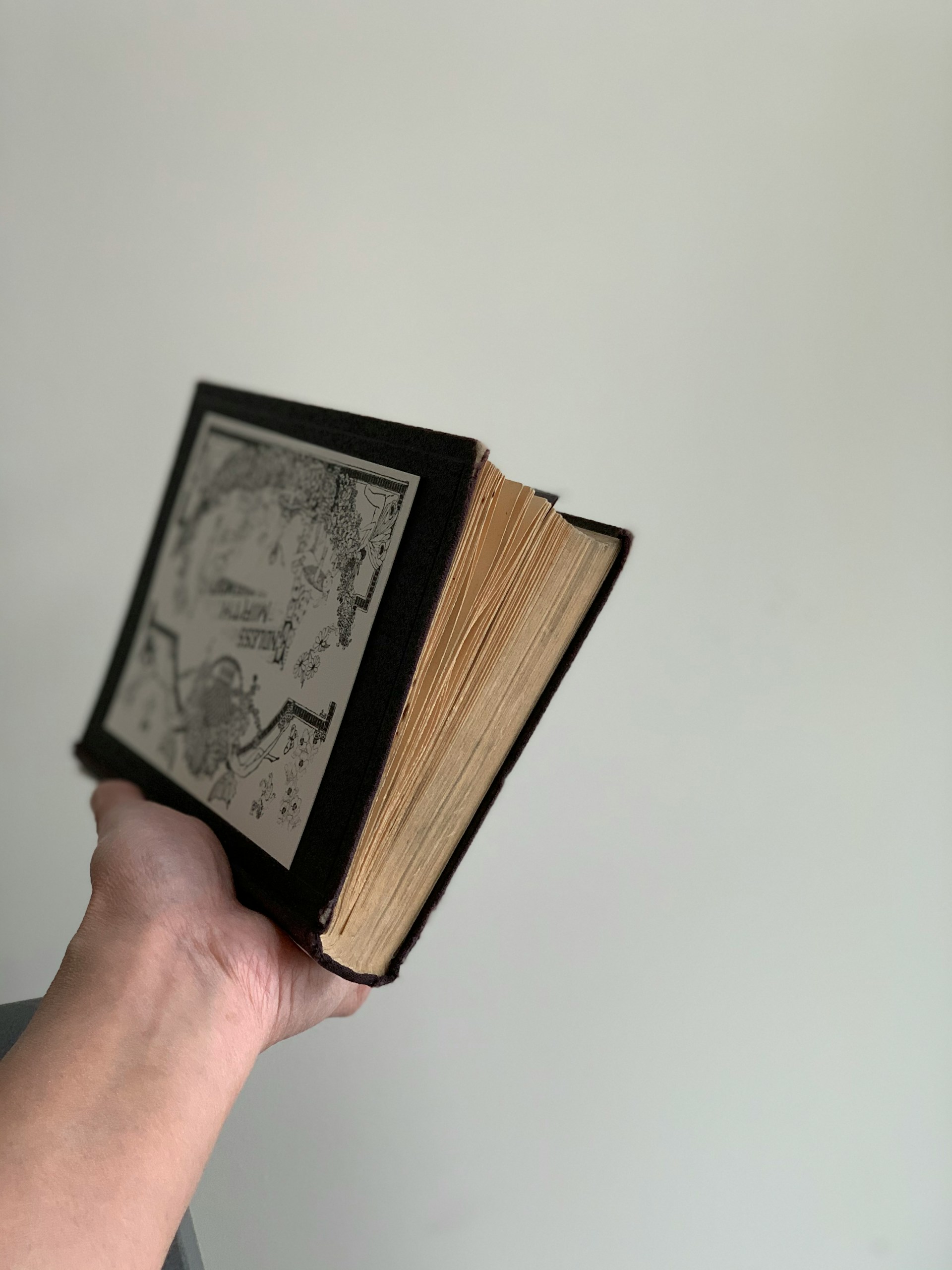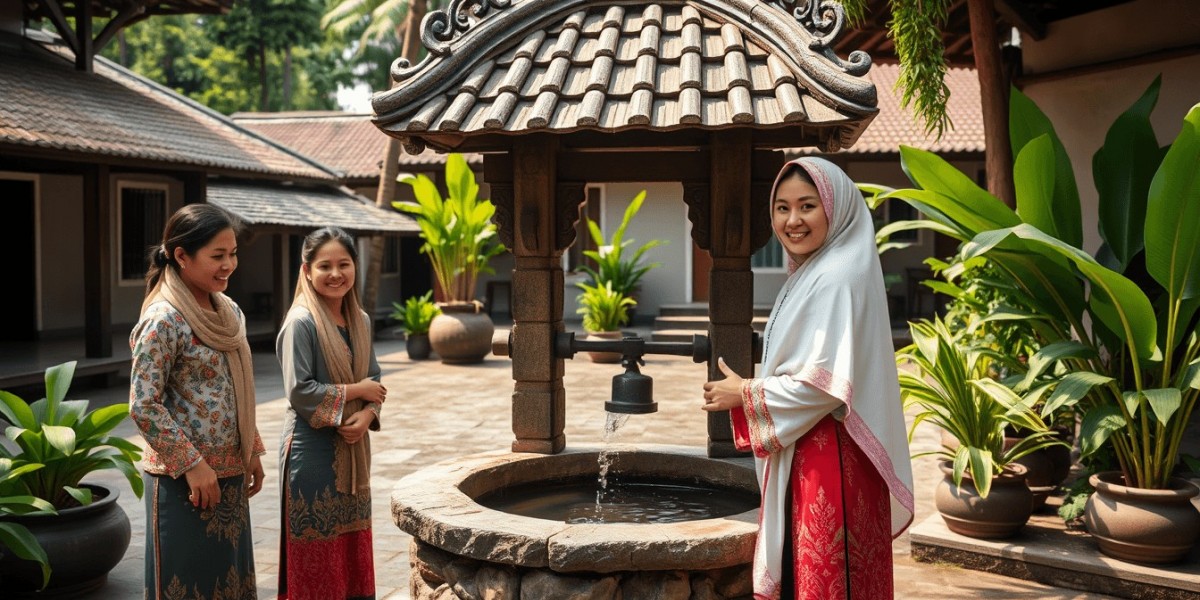In
the rich cultural heritage of Java , there are various concepts and terms that have deep meanings. One of them is "sumur sinaba". This term has an interesting meaning and philosophy to explore further. Let us delve into the meaning and influence of
sumur sinaba in the life of the Javanese community.
1. Definition and Origin of Sumur Sinaba

Old book illustration of primbon (credit: unsplash)
Sumur sinaba is a term in Javanese that consists of two words: "sumur" which means source of water, and "sinaba" which means visited or frequented. Literally, sumur sinaba can be interpreted as a well that is always visited by people.
In the context of Javanese culture, sumur sinaba has a deeper philosophical meaning. This term refers to someone who has traits or characteristics like a well - becoming a place that is often visited by people to obtain something they need, whether it be water, advice, or assistance.
The origin of the concept of sumur sinaba can be traced back to the tradition of weton calculation in Javanese culture. Weton is the combination of the day and market when someone is born, which is believed to influence that person's character and destiny. In the calculation of weton, sumur sinaba is one of the results considered to have a positive meaning.
2. Characteristics of People with the Sumur Sinaba Trait
A person who possesses the sumur sinaba trait is generally described as having the following characteristics:
- Wise and broad-minded
- Helpful and generous
- A place for asking questions or seeking advice
- Has a leadership spirit
- Respected and esteemed by those around them
- Has abundant fortune
- Able to provide a positive influence on their environment
People with the sumur sinaba trait often become role models and a source of support for those around them. They are considered to possess wisdom and knowledge that can help solve various problems.
3. The Influence of Sumur Sinaba in Daily Life

Man wearing Javanese traditional clothing (credit: unsplash)
The concept of the sinaba well has a significant influence on the lives of the Javanese community. Several aspects of life that can be influenced by the nature of the sinaba well include:
1. Social Relationships
People with the nature of the sinaba well tend to have good social relationships. They often become a place for friends and relatives to share their problems or seek advice. This makes them have a wide and strong social network. Their ability to listen and provide solutions makes others feel comfortable and appreciated when interacting with them.
2. Career and Employment
In the workplace, someone with the nature of the sinaba well often holds important positions or becomes a leader. Their ability to provide solutions and direction makes them appreciated by colleagues and superiors. They also tend to succeed in fields that require interaction with many people, such as consultants, teachers, or organizational leaders.
3. Family Life
In the context of family, people with the nature of the sinaba well can become figures who unite and provide tranquility. They are capable of mediating conflicts and offering wise advice to family members. Their presence often brings harmony and stability to household life.
4. Spiritual and Religious
The nature of the sinaba well is also often associated with spiritual closeness. These individuals are considered to have a deep understanding of religious teachings and can become spiritual guides for others. They are often sought for advice or interpretation on religious issues.
4. Sinaba Well in the Context of Marriage
In Javanese tradition, the concept of the sinaba well also plays an important role in matchmaking and marriage. Couples whose weton fall into the category of sinaba well are considered to have a harmonious and blessed married life.
Some characteristics of a marriage with elements of the sinaba well include:
- A harmonious and peaceful household
- Abundant fortune
- Partners who support and complement each other
- Being a role model for family and the surrounding community
- Able to resolve various problems wisely
However, it is important to remember that the harmony of a household is not solely determined by weton calculations, but also by the efforts and commitment of both parties in living a married life.
5. How to Determine the Weton of the Sinaba Well

Calendar (credit: unsplash)
To determine whether someone has a weton that falls into the category of sumur sinaba, a special calculation based on the day and market of birth is needed. Here are the general steps:
- Determine the day and market of birth (for example, Monday Wage)
- Calculate the neptu value of that day and market
- Add the neptu values of the day and market
- Divide the sum by the number 4
- If the result of the division has a remainder of 4, then it falls into the category of sumur sinaba
Example calculation:
- Monday has a neptu of 4
- Wage market has a neptu of 4
- Total neptu: 4 + 4 = 8
- 8 divided by 4 = 2 remainder 0
- Since the remainder is not 4, it does not fall into sumur sinaba
It is important to note that this calculation may vary depending on the sources and local traditions followed.
6. Myths and Facts About the Sinaba Well
Like other traditional concepts, the Sinaba well also has various myths that have developed in society. Here are some myths and facts that need to be known:
Myths:
- People with the Sinaba well birth date will surely become wealthy
- Marrying someone with the Sinaba well birth date guarantees happiness
- Only certain people can possess the traits of the Sinaba well
Facts:
- The traits of the Sinaba well can be possessed by anyone, regardless of their birth date
- Success and happiness still depend on individual effort and attitude
- The calculation of birth dates is just one aspect of Javanese tradition, not an absolute determinant of a person's fate
7. The Relevance of the Sinaba Well in the Modern Era

Man wearing traditional Javanese clothing (credit: unsplash)
Although the concept of the sinaba well is rooted in ancient Javanese tradition, the values contained within it are still relevant to be applied in the modern era. Some aspects that can be adapted include:
1. Wise Leadership
The nature of the sinaba well, which serves as a place to ask questions and seek advice, aligns well with the concept of modern leadership that emphasizes wisdom and the ability to listen. Leaders who possess these characteristics tend to be more effective in managing teams and resolving conflicts.
2. Emotional Intelligence
The ability to understand and help others, which is a hallmark of the sinaba well, is in line with the importance of emotional intelligence in social and professional interactions today. Individuals with high emotional intelligence are better able to build good relationships and tackle challenges in various situations.
3. Lifelong Learning
The concept of the sinaba well, which is always a source of knowledge and insight, encourages the spirit of continuous learning and self-development, which is very important in today's information era. Individuals who continuously develop their knowledge and skills will be better prepared to face changes and challenges in an increasingly complex world.
4. Social Contribution
The helpful nature and the ability to provide a positive influence on the environment that is inherent in the concept of 'sumur sinaba' is very relevant to the concept of social responsibility that is increasingly emphasized in modern society. Individuals and organizations that actively contribute to the welfare of the community tend to be more valued and successful in the long term.
8. How to Develop the Qualities of the Sinaba Well
For those interested in developing the positive qualities contained in the concept of the Sinaba well, here are some tips that can be practiced:
- Broaden your horizons by reading extensively and learning from various sources
- Practice active listening skills and empathy towards others
- Develop a humble attitude and willingness to help others
- Practice servant leadership in various aspects of life
- Be a positive role model for those around you
- Continue to hone your skills in problem-solving and providing solutions
- Maintain a balance between personal development and contributions to society
9. The Differences Between the Sinaba Well and Other Concepts in Javanese Primbon

Old book (credit: unsplash)
In Javanese primbon, there are various other concepts that have similarities or are related to the Sinaba well. Here are some of them along with their differences:
1. Sinaba Well vs Wasesa Segara
Wasesa Segara is also one of the results of weton calculations that is considered good. The differences are:
- Sinaba Well: Emphasizes the quality as a place for inquiry and a source of knowledge
- Wasesa Segara: Focuses more on strength and the ability to control situations
2. Sinaba Well vs Satria Wibawa
Satria Wibawa also depicts a respected figure, but with a different emphasis:
- Sinaba Well: Emphasizes wisdom and a helpful nature
- Satria Wibawa: Places more emphasis on courage and charisma
3. Sinaba Well vs Bumi Kapetak
Both of these concepts are related to fortune, but with different characteristics:
- Sinaba Well: Abundant fortune accompanied by wisdom in sharing it
- Bumi Kapetak: Focuses on stability and security in material matters
10. The Influence of the Sinaba Well in Various Aspects of Life
The concept of 'sumur sinaba' not only impacts personal and family life but can also have effects in various other aspects of life. Here are some examples:
1. Education
In the world of education, a teacher or lecturer with the characteristics of 'sumur sinaba' can be an effective role model for their students. They not only transfer knowledge but also provide guidance and inspiration for the development of students' character. Educators with these characteristics tend to be more capable of motivating and guiding students to reach their best potential.
2. Business and Entrepreneurship
An entrepreneur with the characteristics of 'sumur sinaba' tends to have a broad vision and the ability to guide their employees. They can create a positive company culture that is oriented towards mutual growth. In an increasingly complex business world, the ability to provide wise direction and build a solid team becomes the key to success.
3.Public Service
In the public service sector, individuals with the characteristics of a wise leader can become effective and respected leaders. They are able to listen to the aspirations of the community and provide wise solutions to various issues. Their ability to understand the needs of the community and deliver good service can enhance public trust in the institutions they lead.
4.Art and Culture
Artists or cultural figures with the characteristics of a wise leader can be a source of inspiration and guidance for the younger generation. Their works often carry moral messages and noble values that can enrich community life. Through their works and teachings, positive values can be disseminated and preserved within society.
11. Challenges in Implementing the Concept of the Sinaba Well

Woman in traditional Javanese attire (credit: unsplash)
Although the concept of the Sinaba well has many positive values, applying it in everyday life is not without challenges. Some obstacles that may be faced include:
- Pressure to always be "perfect" and not make mistakes
- Mental burden due to too many people depending on and seeking advice
- Difficulty in maintaining a balance between helping others and taking care of oneself
- Risk of being exploited by irresponsible individuals
- Challenges in maintaining humility amidst praise and respect from others
To overcome these challenges, it is important for someone to maintain balance, know their limits, and not hesitate to ask for help or support when needed.
12. Frequently Asked Questions About Sumur Sinaba
Here are some frequently asked questions related to the concept of the sinaba well along with their answers:
1.Can everyone possess the traits of the sinaba well?
Yes, essentially everyone has the potential to develop the positive traits contained within the concept of the sinaba well. Although some believe that these traits are related to one's birth date, values such as wisdom and a willingness to help can be trained and developed by anyone.
2.What if the result of my birth date calculation is not the sinaba well?
The birth date calculation is just one aspect of Javanese tradition and does not absolutely determine a person's traits or destiny. What is more important is how we develop ourselves and behave in our daily lives.
3.Is the concept of the sinaba well only applicable in Javanese culture?
Although the term "sinaba well" originates from Javanese culture, the values contained within it, such as wisdom, a willingness to help, and being a role model, can be found in various cultures around the world.
4.How can one balance being a sinaba well and maintaining mental health?
It is important to set healthy boundaries, learn to say "no" when necessary, and take time for self-care. Remember that in order to effectively help others, we also need to be in a good mental and emotional state.
5. Are there negative impacts of having a selfless nature?
If not managed well, a selfless nature can make someone feel burdened or taken advantage of by others. It is important to maintain balance and not forget one's own needs while helping others.
13. Conclusion

Ancient book illustration of primbon (credit: unsplash)
The concept of sumur sinaba in Javanese culture holds profound wisdom and remains relevant to apply in the modern era. Although rooted in the tradition of weton calculations, the values contained within it, such as wisdom, helpfulness, and being a role model, are universal traits that anyone can develop.
In applying the concept of sumur sinaba, it is important to maintain a balance between helping others and taking care of oneself. With the right understanding and wise application, the traits of sumur sinaba can guide us to lead a more meaningful life and contribute positively to society.
Regardless of belief in weton calculations, the essence of sumur sinaba - being a source of wisdom and assistance for others - is a noble value that deserves to be preserved and developed in daily life. Thus, we can play a role in creating a more harmonious and supportive community.
Discover more interesting reviews at kapanlagi.com. If not now, when?
(kpl/psp)
Disclaimer: This translation from Bahasa Indonesia to English has been generated by Artificial Intelligence.



















